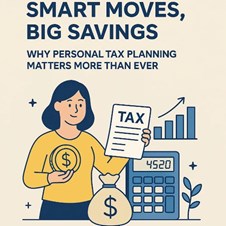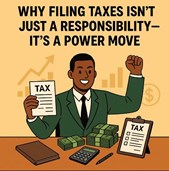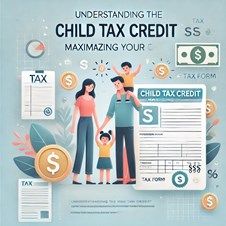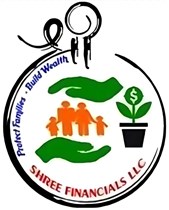How to File Income Tax Returns in the USA and Canada as a Small Business Owner or Self

If you are a small business owner or self-employed individual who operates in both the USA and Canada, you may face some challenges and opportunities when it comes to filing your income tax returns. Depending on your citizenship, residency, and income sources, you may have to file tax returns in both countries and comply with different tax rules and regulations. However, you may also be able to take advantage of some tax benefits and deductions that can reduce your tax liability and optimize your financial performance.
In this blog post, we will provide some practical advice for small business owners and self-employed individuals on how to file income tax returns in the USA and Canada, as well as some tips on tax planning, estimated tax payments, and deductible expenses.
Determine Your Tax Obligations in Both Countries
The first step to filing your income tax returns in the USA and Canada is to determine your tax obligations in both countries. This will depend on several factors, such as:
- Your citizenship: If you are a US citizen, you are required to file a US income tax return every year, regardless of where you live or work. If you are a Canadian citizen, you are not required to file a Canadian income tax return unless you are a resident of Canada or have income from Canada.
- Your residency: If you are a resident of Canada, you are taxed by Canada on your worldwide income, regardless of where it came from. If you are a resident of the USA, you are taxed by the USA on your worldwide income, unless you qualify for the foreign earned income exclusion or the foreign tax credit.
- Your income sources: If you have income from both the USA and Canada, such as business income, employment income, interest income, dividends, royalties, or capital gains, you may have to report it in both countries and pay taxes accordingly.
To avoid double taxation, the USA and Canada have a tax treaty that provides relief for taxpayers who have income from both countries. The treaty allows taxpayers to claim credits or exemptions for taxes paid in one country against their tax liability in the other country. However, to benefit from the treaty, taxpayers have to file their tax returns accurately and on time in both countries.
Plan Ahead for Your Tax Payments
As a small business owner or self-employed individual, you may have to make estimated tax payments throughout the year to avoid penalties or interest charges. Estimated tax payments are based on your expected income and expenses for the current year and can be adjusted as your situation changes.
In Canada, if you expect to owe more than $3,000 in federal taxes or more than $1,800 in provincial taxes for the current year (after deducting any taxes withheld at source), you have to make quarterly instalments of your taxes. The instalment dates are March 15, June 15, September 15, and December 15. You can calculate your instalments using one of the three methods provided by the CRA: the no-calculation option, the prior-year option, or the current-year option.
In the USA, if you expect to owe more than $1,000 in federal taxes for the current year (after subtracting any withholding and refundable credits), you have to make quarterly estimated tax payments. The payment dates are April 15, June 15,
September 15, and January 15 of the following year. You can calculate your estimated tax payments using Form 1040-ES.
Claim Your Deductible Expenses
One of the ways to reduce your taxable income and save money on your taxes is to claim your deductible expenses. Deductible expenses are costs that are related to your business or self-employment activities that are reasonable and necessary. Some examples of deductible expenses are:
- Advertising and promotion
- Business insurance
- Business licenses and fees
- Business travel
- Car expenses
- Home office expenses
- Interest and bank charges
- Legal and accounting fees
- Office supplies
- Rent
- Salaries and wages
- Utilities
However, not all expenses are deductible in both countries. For example, in Canada, meals and entertainment expenses are only 50% deductible, while in the USA, they are generally not deductible at all. Therefore, it is important to keep track of your expenses and receipts and follow the rules and limitations of each country when claiming them.
Filing income tax returns in the USA and Canada as a small business owner or self-employed individual can be complicated and time-consuming. However, with proper planning and preparation, you can avoid common pitfalls and take advantage of available opportunities. If you need help with your tax filing or have any questions about your tax situation, you can contact a professional accountant or tax advisor listed in Sulekha and they can assist you with your specific needs.
Searching for Financial & Taxation Services? Let’s make your search simple with professionals!
Take your Financial & Taxation Services to the next level with Sulekha. Boost your online visibility, connect with more clients, and grow effortlessly!
Blogs Related to Financial & Taxation Services

Smart Moves, Big Savings: Why Personal Tax Planning Matters More Than Ever
Let’s face it — taxes aren’t exactly thrilling. But saving money? Now that’s exciting. Personal tax planning isn’t just for the wealthy or the finance-savvy. It’s for anyone who wants to keep more of what they earn and avoid last-minute filing stress

Money Talks—But Are You Listening? Why Financial Planning Isn’t Just for the Rich
Let’s bust a myth right now: financial planning isn’t just for millionaires. It’s for anyone who wants to stop living paycheck to paycheck, retire without panic, or simply make smarter money moves. Whether you're a salaried professional, a small

Why Filing Taxes Isn’t Just a Responsibility—It’s a Power Move!
Let’s face it: nobody jumps out of bed yelling “Yay! It’s tax season!” (unless you’re a CMA with a caffeine addiction). For most of us, taxes are more like that distant cousin you only remember when they show up — demanding attention, documents, and

How to Spot a Great Finance & Tax Expert in the U.S. (Even If You Slept Through Math Class)
So, taxes are due, deductions look like gibberish, and financial jargon makes you want to run. You tell yourself, “I’ll Google it” — but 3 tabs later, you’re watching cat videos and forgetting what HRA even means. Enter: The Finance & Tax Expert

Understanding the Child Tax Credit: Maximizing Your Benefits
What is the Child Tax Credit? The Child Tax Credit (CTC) is a U.S. tax benefit that helps families manage the financial responsibilities of raising children. It reduces tax liability for eligible parents and offers partial refunds even if no taxes a

How Global Events Like the Ukraine Conflict Affect Your Investments and Taxes
International conflicts can have far-reaching consequences, not just on geopolitics but also on the global economy. The ongoing situation in Ukraine serves as a stark reminder of how these events can influence taxation and investment landscapes, crea



